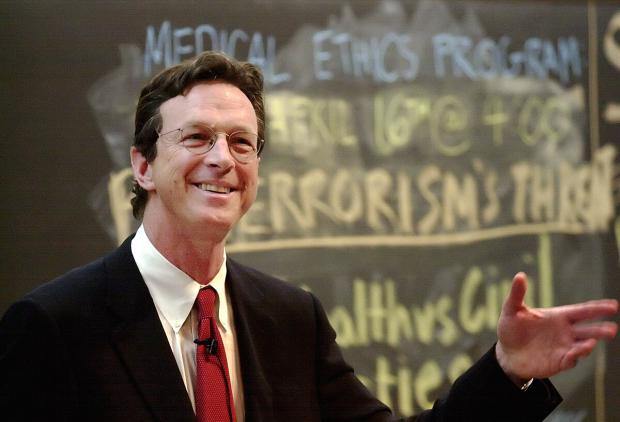
Breaking News
 Unfinished Story... #usa #israel #palestine #politics #congress #europe #news #uk #canada
Unfinished Story... #usa #israel #palestine #politics #congress #europe #news #uk #canada
 "Most Degenerate Newspaper In History" - Trump Slaps NYT With $15 Billion Defamation Lawsu
"Most Degenerate Newspaper In History" - Trump Slaps NYT With $15 Billion Defamation Lawsu
 Full Israeli Ground Offensive In Gaza City Begins: 'We Will Not Relent Until Mission Complete
Full Israeli Ground Offensive In Gaza City Begins: 'We Will Not Relent Until Mission Complete
Top Tech News
 We finally integrated the tiny brains with computers and AI
We finally integrated the tiny brains with computers and AI
 Stylish Prefab Home Can Be 'Dropped' into Flooded Areas or Anywhere Housing is Needed
Stylish Prefab Home Can Be 'Dropped' into Flooded Areas or Anywhere Housing is Needed
 Energy Secretary Expects Fusion to Power the World in 8-15 Years
Energy Secretary Expects Fusion to Power the World in 8-15 Years
 ORNL tackles control challenges of nuclear rocket engines
ORNL tackles control challenges of nuclear rocket engines
 Tesla Megapack Keynote LIVE - TESLA is Making Transformers !!
Tesla Megapack Keynote LIVE - TESLA is Making Transformers !!
 Methylene chloride (CH2Cl?) and acetone (C?H?O) create a powerful paint remover...
Methylene chloride (CH2Cl?) and acetone (C?H?O) create a powerful paint remover...
 Engineer Builds His Own X-Ray After Hospital Charges Him $69K
Engineer Builds His Own X-Ray After Hospital Charges Him $69K
 Researchers create 2D nanomaterials with up to nine metals for extreme conditions
Researchers create 2D nanomaterials with up to nine metals for extreme conditions
 Laser connects plane and satellite in breakthrough air-to-space link
Laser connects plane and satellite in breakthrough air-to-space link
 Lucid Motors' World-Leading Electric Powertrain Breakdown with Emad Dlala and Eric Bach
Lucid Motors' World-Leading Electric Powertrain Breakdown with Emad Dlala and Eric Bach
Michael Crichton's Unheeded Warning of Biotechnology Catastrophe

Yet despite this dino-disaster movie popularity, most people have failed to heed the warning Crichton makes clear in many of his novels about the terrible dangers of modern technology – especially biotechnology and genetic engineering.
As Jurassic Park's Ian Malcolm puts it, "genetic power is far more potent than atomic power" and potentially even more destructive. That destructive power manifested itself on a global scale during the Covid disaster, precipitated both by an apparently bioengineered pathogen and the genetically engineered injection widely promoted to combat it.
For a long time, Crichton's novels and films depicted catastrophes caused by technology going berserk and beyond the control of its human creators. For instance, in his 1973 movie Westworld, Crichton's story depicted an interactive amusement park replicating an American Old West town, with humanoid robots. To the consternation of the programmers, the robots eventually escape their control and commit brutal murders of many customers in the park.
However, these destructive robots are simply artificial technological simulations. The mayhem in Crichton's tales gets even worse when the natural world is involved. In Crichton's view, the world of nature is far more complicated and uncontrollable, making the destructive consequences of human attempts at manipulation all but inevitable.
Crichton declares his stance about this explicitly in his introduction to the 2002 novel Prey, which is about biology-based nanotechnology. He explains, "The total system we call the biosphere is so complicated that we cannot know in advance the consequences of anything that we do," which therefore is a "powerful argument for caution."
Continuing in that vein, he makes an astonishing prediction: "Sometime in the twenty-first century, our self-deluded recklessness will collide with our growing technological power. One area where this will occur is in the meeting point of nanotechnology, biotechnology, and computer technology. What all three have in common is the ability to release self-replicating entities into the environment."
Gain-of-function viral bioengineering and self-replicating mRNA vaccines delivered by lipid nanoparticles have now made this forecast a reality.
Crichton's theme is not the usual sci-fi disaster trope about the human race misusing scientific advances for war or other evil ends. His point is that both highly complex technological systems and the biological world are inherently uncontrollable and tend toward chaotic breakdown, regardless of our attempts to keep them under control.

 Robert Redford dead at 89
Robert Redford dead at 89


